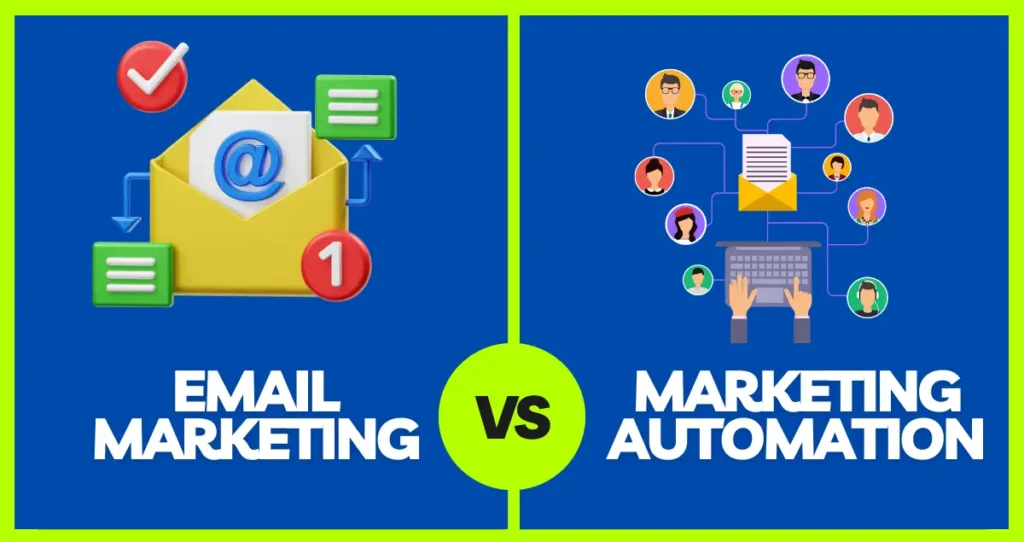1. Introduction
Businesses must plan their marketing budget, which constitutes their most essential operational responsibility. Every business requires market budget planning skills to distribute its funds effectively regardless of its size or establishment status. Businesses run into budget problems by either running out of money or failing to discover new opportunities. This guide presents a detailed approach to building a marketing budget that supports your business goals for reaching success.
A marketing budget serves as an organizational strategy that supports company expansion. When implemented correctly, it transforms promotional activities and produces a higher return on investment (ROI). You need to understand the reasoning behind and steps for creating a suitable marketing budget that addresses today’s business requirements.
2. What is a Marketing Budget?

A marketing budget serves as a financial blueprint that determines how resources get used for marketing operations. The set of activities inside your marketing budget integrates digital advertisements and events with content production and social media promotional plans. Your financial plan for marketing initiatives prevents your business from over-expenditure when it achieves its marketing goals.
Every organization, regardless of its size, requires marketing budget planning to distribute its financial resources optimally. The budget system establishes spending restrictions while it tracks marketing costs and positions all promotional activities against business objectives. Your marketing expense control becomes challenging when you lack proper budgeting.
3. Why is Marketing Budget Essential?

An adequately structured marketing budget gives users multiple advantages. First, it acts as a protection mechanism against overspending. Second, the available budget enables you to determine which essential campaigns will generate the most effective outcomes.
By using marketing budgets, you gain the advantage of tracking and assessing the return on investment for all marketing initiatives. Budget control combined with spending observation makes it possible to evaluate successful marketing strategies. The gathered information can benefit your strategic plan, enabling you to make more effective decisions by eliminating campaigns that fail to produce results.
The establishment of a marketing budget ensures improved business organization. Your marketing expenditure visibility enables better planning for upcoming campaigns.
4. Key Factors to Consider Before Creating a Marketing Budget

Your budgeting process requires a proper consideration of essential elements to shape your plan correctly. An analysis of these key factors starts below:
- Business Size: A business’s size determines its possible marketing budget, yet small businesses maintain the capability to produce successful promotion strategies.
- Industry: The way marketing strategies need to be designed differs based on which industry sector a company operates within. The marketing budget allocations for technology companies will go toward digital advertisement spending, but local businesses will maintain their support for community events and printed advertising.
- Business Goals: A company must adjust its marketing spending according to the established business targets. Your marketing strategy funding distribution depends on your specific business goals, which include boosting brand awareness, generating leads, and increasing sales performance.
- Target Audience: Recognize your preferred audience completely because it produces essential details. Your customer activity patterns (social media platforms, search engines, or physical stores) should guide your budget distribution to achieve maximum effect.
Budget planning for marketing requires an assessment of these elements to develop a spending plan suitable for your company.
Ready to Boost Your Marketing? Lead Your Marketing Budget Control Today to Avoid Setbacks. Get started today!
5. How to Plan a Marketing Budget

The following part explains the practical steps for creating a marketing budget after understanding its crucial elements.
5.1. Define Your Marketing Goals
Before starting your marketing budget planning process, you need to establish quantitative goals that define what you want to achieve through marketing activities. Establish the goals that you intend to gain from your marketing activities. Your organization aims for more website visitors alongside better customer loyalty combined with higher sales figures.
Specific goals require both measurement capabilities, time-defined target dates, and realistic possibilities while maintaining their direct connection to the business objectives. For example, the SMART goal states, “We need to achieve 30% more website visitors during six months using content marketing strategies.” Clear objectives about your targets enable you to make better investments in your resources.
5.2. Analyze Past Performance
Diagnosing previous marketing efforts enables you to prevent repeating past mistakes. Your previous budget evaluation should include an assessment of which communication channels produced which results. Assessing your strategies allows you to determine the practical methods and the ones that proved ineffective.
Quantify your marketing strategy by assessing three essential metrics, which include CAC, LTV and ROI. The assessment of previous market performance enables you to direct your marketing dollars efficiently throughout this current year.
5.3. Allocate Funds by Marketing Channel
After goal setting and analysis of past performance comes the process of distributing marketing funds across different channels. Marketing channels can include:
- Digital Advertising: Paid ads on Google, Facebook, Instagram, or other platforms.
- Content Marketing: Blogging, video creation, SEO efforts.
- Email Marketing: Newsletters, promotional campaigns, and drip campaigns.
Your social media strategy combines unpaid material with money spent on promoted content and work with influencers.
The necessary budget amounts for every channel should be determined by your specific objectives and target market characteristics. You should allocate more of your budget toward paid advertisements to generate additional leads since lead generation functions as your main priority. Brand awareness objectives would lead you to distribute more resources toward content creation along with social media efforts.
5.4. Monitor and Adjust Your Marketing Budget
You need to continuously update the process of creating a marketing budget and allocating funds. Monitoring campaign performance requires essential budget adjustments to reach your desired results. The tracking of key performance indicators (KPIs), which include traffic levels and engagement rates along with conversions and sales, should be maintained methodically.
To enhance their performance, you should move funding resources from underperforming channels toward successful campaigns. When marketing strategies do not produce results, organizations need to discontinue their investment and find alternative methods.
Monitoring your marketing spending frequently draws it toward your business targets while granting you the chance to adjust your actions as market conditions change.
Planning your budget today will unlock marketing possibilities. Get started today!
6. Common Mistakes to Avoid When Planning a Marketing Budget

Multiple errors frequently appear among businesses when they prepare their marketing budget. The most commonly observed budget planning errors consist of:
- Underestimating Costs: Businesses often make the error of misjudging all types of expenditures, including subscription-based software and creative project expenses. Future marketing projects need to include these costs as part of your financial planning system.
- Overestimating Revenue: Do not anticipate quick monetary gains because marketing outcomes usually require extended periods. A marketing campaign requires extensive time before results can appear, either through weeks or even months of investment.
- Lack of Flexibility: The budget requires periodic adjustments because business operations may change. The market conditions might shift, and the results could lead to necessary strategy modifications based on performance outcomes.
7. About Rozi Academy
Rozi Academy operates as an online educational platform that provides extensive business training to entrepreneurs and businesses across marketing, finance, and personal development disciplines. The academy creates its curriculum to develop practical tools that help both individual students and business organizations achieve their success goals.
At Rozi Academy, students can access complete courses dedicated to budget planning for marketing along with budgeting tactics, cost, efficient marketing methods, and performance analysis. Rozi Academy offers all the necessary resources for new starters and experienced professionals who want to reach success in today’s demanding business environment.
Experience better marketing success. Get in touch with Rozi Academy today!
8. Conclusion
Business success depends on developing marketing budgets according to specific organizational needs. Understanding how to plan a marketing budget ensures resource optimization to calculate ROI and confirm which platforms yield the best outcomes. A results-driven marketing budget can be built through goal-setting followed by past performance examination and necessary adjustments.
Using the knowledge you obtained to manage a marketing budget, here is the right time to begin implementing these plans. Interested students can learn the complete process through the training curriculum available at Rozi Academy. Initiating marketing budget planning today will lead to business expansion.
Are you prepared to achieve budgeting mastery through success? Sign up with Rozi Academy now!







